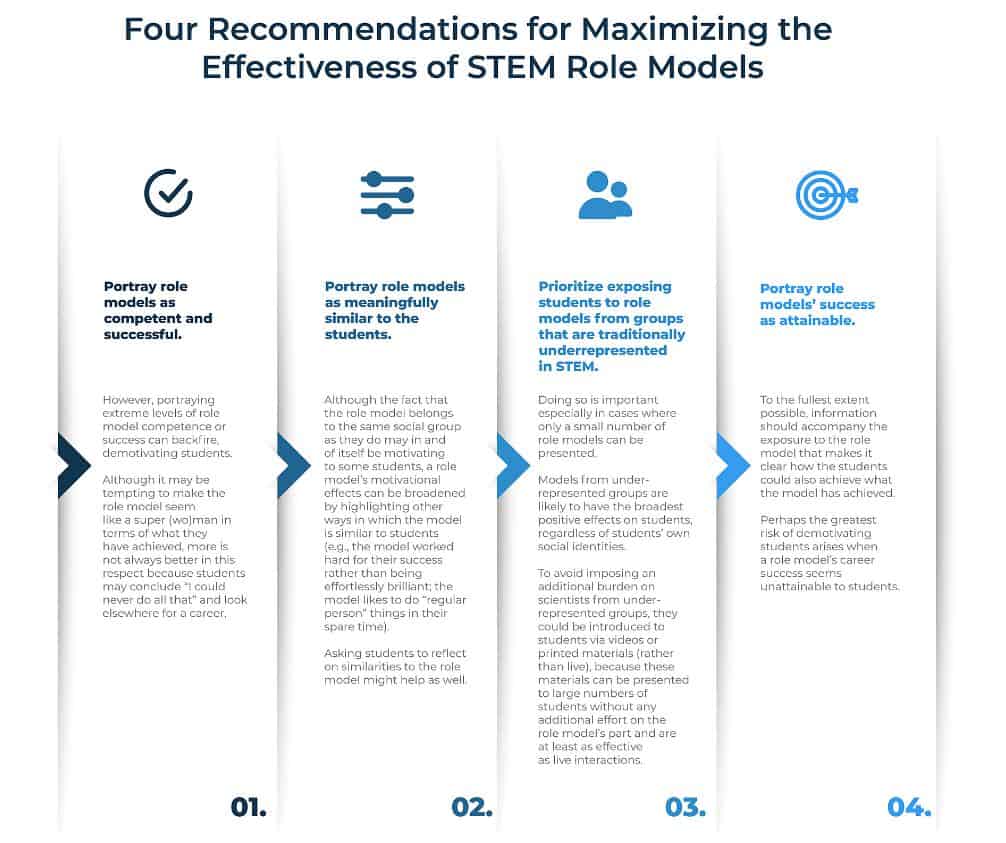A review of the effect role models have on students’ motivation to study STEM topics identifies novel strategies for deploying these leaders to promote learning across diverse demographics.
The guidelines serve as a resource for parents, schools, and regulators interested in maximizing role models’ impact on diversifying STEM disciplines.
“STEM fields fail to attract and retain women as well as racial and ethnic minorities in numbers proportional to their share of the population,” explained Andrei Cimpian, the senior author of the paper.
“A popular method to diversify the STEM workforce has been to introduce students to STEM role models, but less clear is how effective this approach is—simply because it’s not certain which role models resonate with different student populations.”
“Our recommendations, based on an analysis of over 50 studies, are aimed at ensuring that STEM role models are motivating for students of all backgrounds and demographics,” added lead author Jessica Gladstone, a researcher at Virginia Commonwealth University.
While many have asserted that exposing students to role models is a beneficial strategy for increasing diversity in STEM disciplines, the evidence for this claim is inconsistent. Additionally, the researchers stress that the argument is imprecise, leaving unanswered the question of whether and for which groups role models might be effective for this purpose.
Gladstone and Cimpian sought to clarify this critical point by rephrasing the question. Instead of asking “Are role models effective?” they asked a more precise — and potentially more useful — question: “Which role models are effective for which students?”
They addressed the issue by conducting a review of 55 papers on students’ STEM motivation in relation to several important characteristics of role models—their perceived competence, their perceived similarity to students, and the considered attainability of their accomplishment. Additionally, they evaluated how characteristics of pupils, such as gender, race/ethnicity, age, and affinity with STEM, affect the impact of role models.
The team extracted four recommendations from this analysis to guarantee that STEM role models are inspirational for kids of all backgrounds and demographics—a critical step toward STEM diversification.
The following are the four recommendations:

The work was supported by an Inclusive Mathematics Environments Early Career Fellowship from the Mindset Scholars Network (now the Student Experience Research Network), with the support of the Bill & Melinda Gates Foundation.
Source: 10.1186/s40594-021-00315-x
Image Credit: iStock
You were reading: Study reveals key features of role models best for STEM
